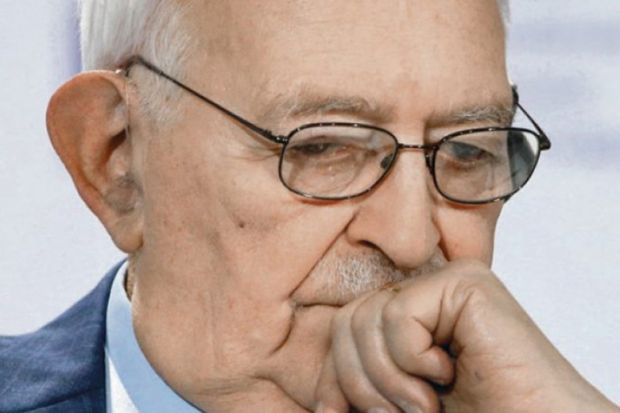The scholar who pioneered “world-systems analysis” has died.
Immanuel Wallerstein was born in New York in 1930. He studied for a BA (1951), MA (1954) and PhD (1959) at Columbia University, although this was interrupted by military service in the Korean War (1951-53). He went on to work in Columbia’s department of sociology from 1958 to 1971 and as professor of sociology at McGill University (1971-76). He then moved to Binghamton University as distinguished professor of sociology (1976-99) and director of the Fernand Braudel Center for the Study of Economies, Historical Systems, and Civilizations (1976-2005), though the latter position overlapped with his final role as senior research scientist at Yale University (from 2000).
Although Professor Wallerstein was fascinated by the anti-colonial struggle and initially made his mark as an expert in Africa, his interests soon ranged far wider – he described his life’s work as “one long quest for an adequate explanation of contemporary reality, so that I and others might act upon it”. He was greatly influenced by the political upheavals of 1968, which he had witnessed first-hand at Columbia, and became a leading figure in the development of world-systems analysis, which gives central attention to the functioning of the international capitalist economy rather than to developments in individual states and cultures.
These ideas were set out in the four volumes of The Modern World-System (1974, 1980, 1989 and 2011), which cover the whole period from the 16th century to 1914, and developed further in books such as Race, Nation, Class: Ambiguous Identities (1991), Unthinking Social Science: The Limits of Nineteenth Century Paradigms (1991), The End of the World As We Know It: Social Science for the Twenty-first Century (1999), World-Systems Analysis: An Introduction (2004) and Alternatives: The United States Confronts the World (2004). Furthermore, twice a month from 1989 to July this year, Professor Wallerstein produced a series of 500 commentaries addressing political developments and wider themes. Recent examples surveyed everything from Mexico “confronting the future” to class struggle, “ontological dilemmas” and the fire at Notre-Dame Cathedral.
Craig Calhoun, university professor of social sciences at Arizona State University, said: “Few academics or intellectuals ever create a new school or intellectual perspective that thrives beyond their lifetimes. Immanuel did, with world-systems analysis.” Under Professor Wallerstein’s leadership, Professor Calhoun said, the Braudel Center became a “remarkable hub of intellectual activity…that sought to escape from the constraints of outmoded disciplines”.
Professor Wallerstein, who died on 31 August, is survived by his wife Beatrice, three children and three grandchildren.




